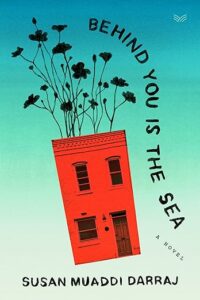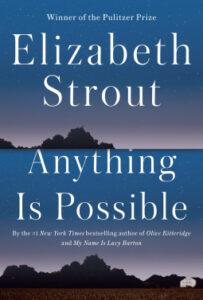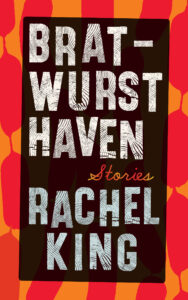The moving, endearing story of Jeremiah Gerstler–son, father, husband, academic, Jew–who tries over the course of his life to be the best person he can, and who will inspire his readers to do the same. Jumping backwards and forwards in time to hone in on various periods in Gerstler’s life, this novel-in-stories offers a sensitive and nuanced portrayal of some of life’s most painful and private moments.
(from Goodreads)
More about this collection
Author Julie Zuckerman’s Goodreads profile
Select reviews from Reading Jewish Fiction, FrictionLit and SFWP Quarterly
An interview with Julie Zuckerman from LitPub
There are some interesting tidbits in the latter interview about the author’s writing process that I will quote here
[Julie Zuckerman]: … I had to balance the stories told from Jeremiah’s POV and from the POVs of others. I made flashcards and rearranged things and wanted to make sure there was a thread that carried through from story to story.
…
“[Jennifer Lang – the interviewer]: How did you decide when to write a chapter in present/past tense?
“JZ: I didn’t think about tense much when I first started writing the stories. Most were written in past tense, but during the revision process it felt more natural for certain stories to be told in present tense. I know some people look down on stories told present tense, but I went with my gut.
“JL: Point of view shifts too. How did you decide who was best narrator for each chapter?
“JZ: It evolved organically, just as with the varying tense shifts. From the outset, I knew I wanted to explore Jeremiah’s life from different perspectives. There are chapters told from the POVs of his mother, brother, wife, daughter and son, and originally there were more of those. But I found that my favorite stories were the ones told from Jeremiah’s POV; for reasons I’m not sure I can explain, I enjoyed being in Jeremiah’s head more than the others.”
I feel a strong resonance here with what Julie is saying. I considered for a long time if I should ‘streamline’ my own linked short stories to be told only in 3rd person, (or perhaps 1st). I was afraid it would be even more difficult to find readers than it already is if I didn’t do this, but after some attempts I simply gave up. There is and was a drive in me to tell connected stories from different POVs and readers will just have to take that or leave it. Sometimes, perhaps all the time when writing, you have to go with what you feel is right. Otherwise what is the point?
– Chris
Quote (from the book)
Jeremiah kept thinking the wet tea bag in his peripheral vision was a glazed donut hole, and each time he looked up and saw it wasn’t, he felt a wave of disappointment. The gnawing for something sweet tugged at his stomach. He shifted his weight to his better leg, eased himself out of the desk chair, and made his way to the kitchen. He opened the cupboards and closed them, opened the refrigerator and shut it, and then the freezer. He knew exactly what was in each one, but he played the opening and closing game hoping there was some hidden-away treat he’d failed to see the first time. There were a thousand ways he missed Molly, but it was the lack of home-cooked food that upset him late at night, made him feel off-kilter. Sure, he was managing—at least that’s what he told his daughter. He could now make himself eggs and pasta, and he kept a supply of deli meat in the fridge for sandwiches, but it wasn’t the same. For a time, Clara Bernstein or Maude Freed or one of Molly’s other widowed friends would stop by with a casserole or pie, but that had ended. And though he’d grumbled to Hannah that the ladies were far inferior to her mother in the cooking department, he missed those dishes now.
Zuckerman, Julie; Zuckerman, Julie. The Book of Jeremiah: A Novel in Stories (p. 172). Press 53. Kindle Edition.



